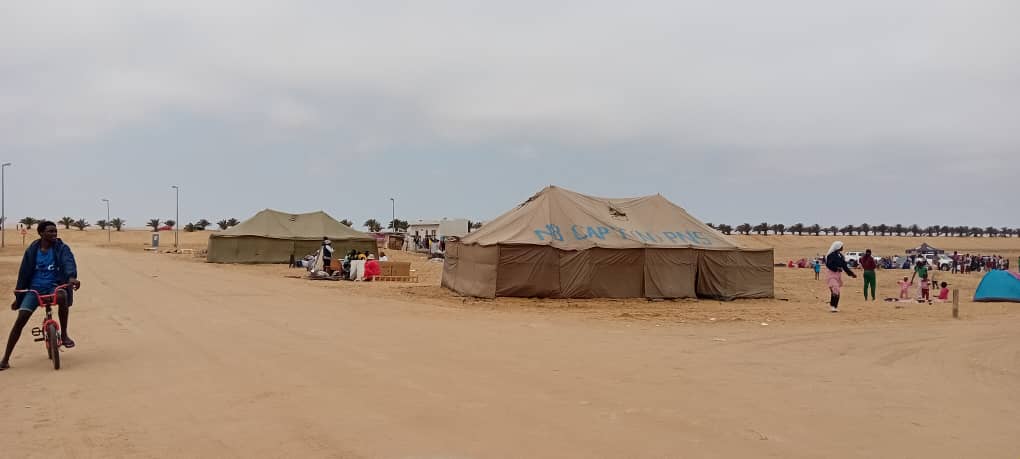EVEN though the Namibian Government has increased allocations to provide HIV treatment, local programmes could be undermined if more money is not made available to strengthen the health system overall, a group of researchers has warned.
A new study co-ordinated by the Institute for Democracy in South Africa (Idasa) on nine African and Latin American countries said noted the boost to HIV-AIDS spending following the launch of ARV treatment programmes in Namibia, South Africa, Mozambique and Kenya. It found that countries must do more to ensure a comprehensive response to the epidemic incorporating prevention, treatment, care and support.The study, entitled ‘Funding the Fight: Budgeting for HIV-AIDS in Developing Countries’, is being discussed by researchers meeting in Johannesburg this week.It found that while many countries have developed national strategic plans and programmes, these were poorly costed and budgeted.It said further that the tracking of resources allocated towards HIV-AIDS in national budgets was hindered by weak or absent links between allocations and their intended objectives and outputs.”Governments have inadequate systems in place to track the allocation of resources for HIV-AIDS,” it said.The report points out that all African countries were falling below the 15 per cent target agreed upon by governments at an OAU Summit in Abuja in 2001.Amongst the African countries, the health allocations, as a share of total government expenditure, range from six per cent in Kenya to approximately 15 per cent in Mozambique.Namibia’s allocation is estimated to be just under 14 per cent.Health budgets in Latin American countries, with the exception of Nicaragua, were primarily financed through state revenue, whereas in African countries, except South Africa, they tend to rely primarily on donor funds.While it was difficult to isolate specific allocations for the disease from the overall health budget, the report found HIV-AIDS earmarked funds consume less then four per cent of health budgets in the Latin American countries included in the study.In Africa, the priority accorded to HIV-AIDS programmes in health budgets varied significantly – from 1,6 per cent in Mozambique, to 11,4 per cent in Kenya in 2002.An important finding from the report was that the increasing allocations being made to HIV-AIDS may be squeezing out other health priorities.In all countries the researchers observed that while HIV-AIDS allocations have been increasing, this has not been matched by a commensurate increase in allocations to the health sector overall.”Without adequate attention to strengthen and support overall health infrastructure, facilities and medical personnel, HIV-AIDS programmes will be undermined, and simultaneously the health care delivery will strain under the burden of HIV-AIDS,” the report said.It urged African countries to increase their own financial commitments to interventions related to the disease and points out that, with the exception of South Africa, most African countries rely to a great extent on donor funding.”Greater commitment of state funds is essential to the longevity of scaled-up programmes, particularly treatment.”It found that countries must do more to ensure a comprehensive response to the epidemic incorporating prevention, treatment, care and support.The study, entitled ‘Funding the Fight: Budgeting for HIV-AIDS in Developing Countries’, is being discussed by researchers meeting in Johannesburg this week.It found that while many countries have developed national strategic plans and programmes, these were poorly costed and budgeted.It said further that the tracking of resources allocated towards HIV-AIDS in national budgets was hindered by weak or absent links between allocations and their intended objectives and outputs.”Governments have inadequate systems in place to track the allocation of resources for HIV-AIDS,” it said.The report points out that all African countries were falling below the 15 per cent target agreed upon by governments at an OAU Summit in Abuja in 2001.Amongst the African countries, the health allocations, as a share of total government expenditure, range from six per cent in Kenya to approximately 15 per cent in Mozambique.Namibia’s allocation is estimated to be just under 14 per cent.Health budgets in Latin American countries, with the exception of Nicaragua, were primarily financed through state revenue, whereas in African countries, except South Africa, they tend to rely primarily on donor funds.While it was difficult to isolate specific allocations for the disease from the overall health budget, the report found HIV-AIDS earmarked funds consume less then four per cent of health budgets in the Latin American countries included in the study.In Africa, the priority accorded to HIV-AIDS programmes in health budgets varied significantly – from 1,6 per cent in Mozambique, to 11,4 per cent in Kenya in 2002.An important finding from the report was that the increasing allocations being made to HIV-AIDS may be squeezing out other health priorities.In all countries the researchers observed that while HIV-AIDS allocations have been increasing, this has not been matched by a commensurate increase in allocations to the health sector overall.”Without adequate attention to strengthen and support overall health infrastructure, facilities and medical personnel, HIV-AIDS programmes will be undermined, and simultaneously the health care delivery will strain under the burden of HIV-AIDS,” the report said.It urged African countries to increase their own financial commitments to interventions related to the disease and points out that, with the exception of South Africa, most African countries rely to a great extent on donor funding.”Greater commitment of state funds is essential to the longevity of scaled-up programmes, particularly treatment.”
Stay informed with The Namibian – your source for credible journalism. Get in-depth reporting and opinions for
only N$85 a month. Invest in journalism, invest in democracy –
Subscribe Now!










